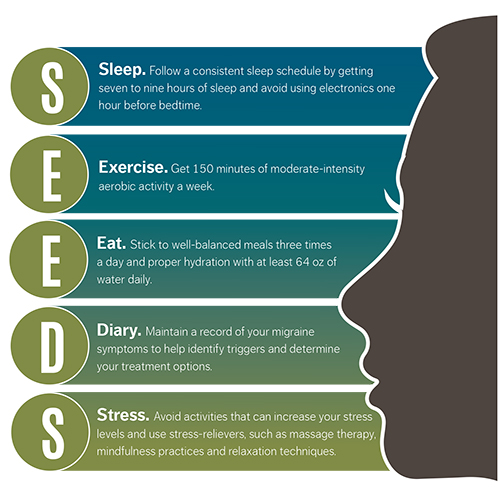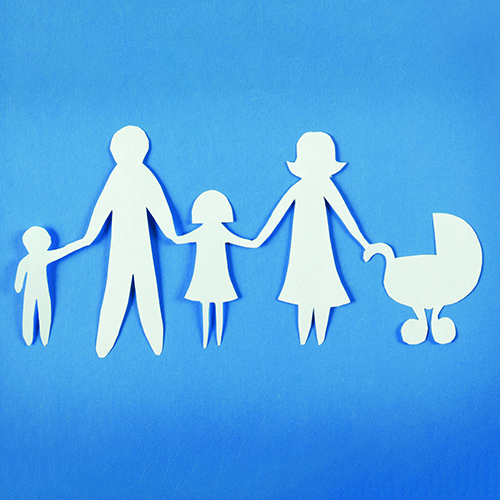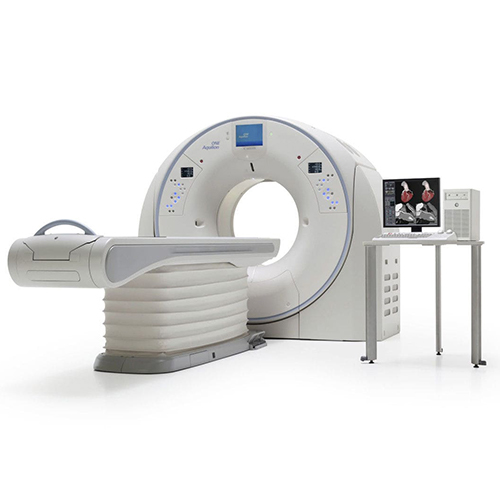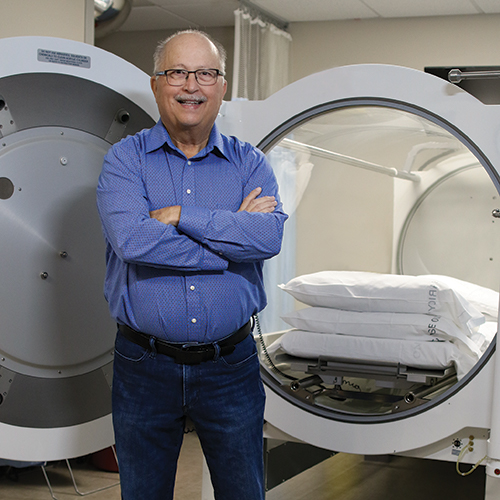Migraine attacks can leave sufferers with extreme pain, light and sound sensitivity, nausea and vomiting, relentless pressure and aftereffects known as a “migraine hangover.” Much more than a headache, a migraine is a neurologic disease that varies in frequency, severity and symptoms.
Causes
Health Expert

Antonette Acosta-Dickson, MD
816.741.5542
Learn more at MeritasHealth.com/AAcosta-Dickson.
More likely to affect family members of migraine sufferers, migraines impact one in five women, one in 16 men and one in 11 children in the U.S. Several environmental and lifestyle causes can trigger migraines, such as:
- Alcohol
- Caffeine withdrawal
- Certain foods
- High levels of stress
- Sensory stimulation, such as bright light or strong odors
- Skipped meals
- Sleep changes
- Weather fluctuations
Signs
Many patients with migraines experience symptoms that begin a few hours or days prior to a headache, and these include light and sound sensitivity and nausea. Sufferers may also experience:
- Concentration problems
- Depression
- Difficulty reading, sleeping and speaking
- Fatigue and muscle stiffness
- Food cravings
- Increased urination
- Irritability
This may be followed by an aura, which is a temporary symptom in the form of a visual change and/or other neurological symptoms, before a migraine begins.
SEEDS of Change

Empowering yourself to make impactful lifestyle changes can help minimize your migraine attacks. SEEDS outlines five areas, including sleep, exercise, nutrition, symptom tracking and stress management, to help gain relief from environmental triggers.
- Sleep: Follow a consistent sleep schedule by getting seven to nine hours of sleep and avoid using electronics one hour before bedtime.
- Exercise: Get 150 minutes of moderate-intensity aerobic activity a week.
- Eat: Stick to well-balanced meals three times a day and proper hydration with at least 64 oz of water daily.
- Diary: Maintain a record of your migraine symptoms to help identify triggers and determine your treatment options.
- Stress: Avoid activities that can increase your stress levels and use stress-relievers, such as massage therapy, mindfulness practices and relaxation techniques.
Treatment
You and your doctor can manage your migraines. Start by seeing your primary care provider, who can refer you to a neurologist with Meritas Health Neurology who specializes in migraine treatment, if needed.
Related Articles

March 9, 2020
3 Sneaky IBS Triggers
For people with irritable bowel syndrome, spring may spark a flare-up in symptoms

June 5, 2024
5 Consejos Sobre Nutricion para un Estilo de Vida Mas Saludable
Una alimentación saludable y una nutrición adecuada desempeñan un parte importante a la hora de mantener una buena salud. Aquí le mostramos cómo mejorar sus hábitos nutricionales.

May 31, 2024
5 Nutrition Tips for a Healthier Lifestyle
Healthy eating and proper nutrition play a big part in maintaining good health. Here's how to improve your nutrition habits.


